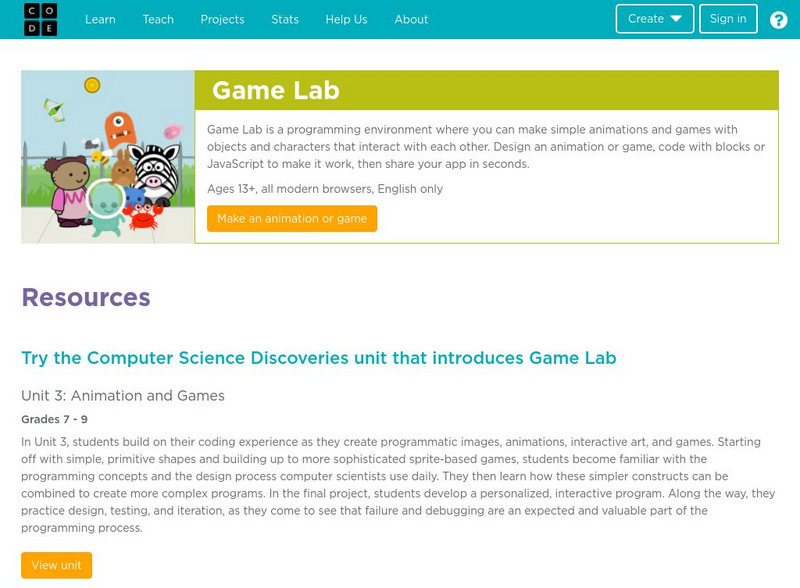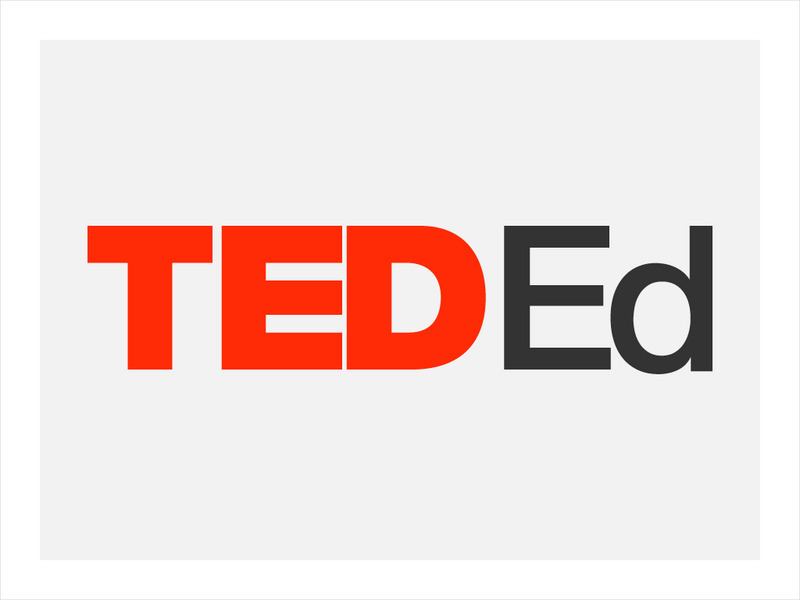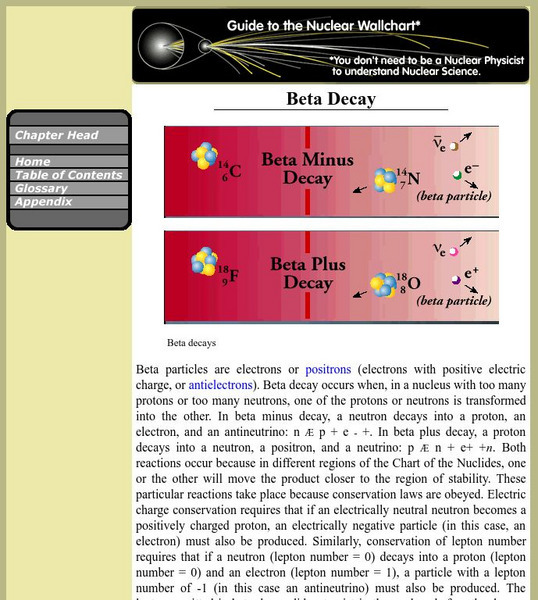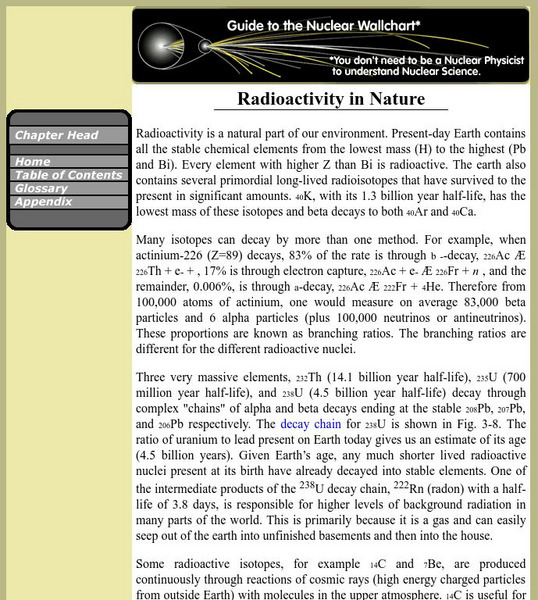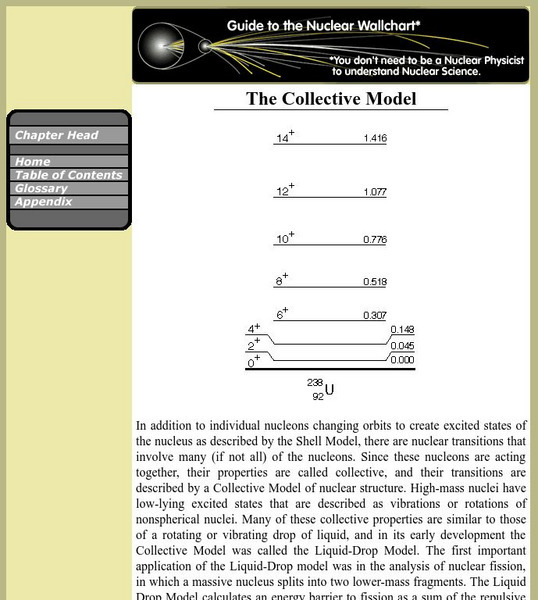Science Education Resource Center at Carleton College
Serc: Lab 7: Nitrates and Phosphates and Algae, Oh My!
A lab experiment, in a series of experiments, that investigates fisheries. In this lab, students test the effects of fertilizers and other pollutants on a model ecosystem. Students also examine 2 years of ocean color (chlorophyll...
Annenberg Foundation
Annenberg Learner: The Habitable Planet: Demographics Lab
Explore data in this lab to see how the population demographics are transitioning with this interactive lab.
Other
Westminster School: Mixed Indicator Lab
A unique upper level lab showing how to take advantage of the different transition points of two indicators to determine the concentrations of two unknowns at once.
Annenberg Foundation
Annenberg Learner: The Habitable Planet: Carbon Lab
An interactive lab simulation demonstrates the effects of increased carbon in the atmosphere and how that increase contributes to climate change. A data table for student records is available for download.
Cornell Lab of Ornithology
Habitat Network: Nature Conservancy and Cornell Lab Partnership
The Cornell Lab of Ornithology and The Nature Conservancy comes together to form a partnership that takes YardMap to its next phase: Habitat Network.
Code.org
Code.org: Game Lab
Game Lab is a programming environment where you can make simple animations and games with objects and characters that interact with each other. Design an animation or game, code with blocks or JavaScript to make it work, then share your...
Code.org
Code.org: App Lab
App Lab is a programming environment where you can make simple apps. Design an app, code in JavaScript with either blocks or text, then share your app in seconds. Start with a blank project, explore the sample apps and take the challenge...
Other
Zoo Lab a Website for Animal Biology: The Reptiles
Some general facts about reptiles are presented with links to pages on different types of reptiles (turtles, alligators, lizards, snakes, and tuataras). The individual pages on the particular reptiles present characteristics and facts...
Smithsonian Institution
Smithsonian Learning Lab: Powerful Symbols and Words: Abolitionism & Women's Rights
This collection looks at an image and phrase used widely in abolitionist materials, and at how that symbol was adopted and adapted by Sojourner Truth and/or other women's rights activists. Students will examine an abolitionist medallion...
University of Richmond
Digital Scholarship Lab: Voting America: Congressional Elections
Animated maps analyze data pertaining to congressional elections b.etween 1992-2008.
University of Richmond
Digital Scholarship Lab: Redlining Richmond 1930s
As part of the New Deal, the HOLC assessed neighborhoods using a number of factors in order to identify safe places for mortgages. The assessment surveys and map produced for Richmond, which this site allows you to explore in detail,...
Florida State University
Florida State University: Magnet Lab: Magnetic Thin Films
This gallery takes readers from the 1880s and the pioneering work of German physicist August Kundt, up to recent advances in technology, including interlayer exchange coupling (IEC) and giant magnetoresistance (GMR).
Florida State University
Florida State University: Magnet Lab: Metallic Superlattices
A look at superlattices (alternating layers of thin films deposited in an orderly manner), methods for forming them, and their applications.
Science Education Resource Center at Carleton College
Serc: Greenhouse Effect Lab
Students measure temperature changes inside soda bottles filled with CO2 and air as incandescent light is shined on them to model the Greenhouse Effect.
TED Talks
Ted: Ted Ed: What We Learned From 5 Million Books
Have you played with Google Labs' Ngram Viewer? It's an addicting tool that lets you search for words and ideas in a database of 5 million books from across centuries. Erez Lieberman Aiden and Jean-Baptiste Michel show us how it works,...
Lawrence Berkeley National Laboratory
Berkeley Lab: Radioactivity
Overview of radioactivity, the process in which particles are emitted from nuclei as a result of nuclear instability.
Lawrence Berkeley National Laboratory
Berkeley Lab: Beta Decay
Entry explores the process of beta decay which occurs when, in a nucleus with too many protons or too many neutrons, one of the protons or neutrons is transformed into the other.
Lawrence Berkeley National Laboratory
Berkeley Lab: Radioactivity in Nature
This entry provides a summary of radioactivity in nature and the decay chain.
Lawrence Berkeley National Laboratory
Berkeley Lab: The Collective Model
Entry describes the Collective Model of nuclear structure.
Lawrence Berkeley National Laboratory
Berkeley Lab: The Sun
This page provides a brief discussion of the sun and its energy flow.
Lawrence Berkeley National Laboratory
Berkeley Lab: Van De Graaff
Featured is a brief description of the Van de Graaff accelerator and its uses.
Lawrence Berkeley National Laboratory
Berkeley Lab: Industrial Applications
Features an exploration of the many common industrial applications that use radioisotopes including smoke detectors, agriculture, arts and humanities, and the automobile industry.
Lawrence Berkeley National Laboratory
Berkeley Lab: Nuclear Fusion Power
Provides a brief explanation of nuclear fusion power which offers the promise of an almost inexhaustible source of energy for future generations if the reactors can be made to work.
Lawrence Berkeley National Laboratory
Berkeley Lab: Units of Radioactivity and Dose
Learn about the units for measuring the amount of radioactivity and the categories of radiation dose.
Other popular searches
- Lab Safety
- Biology Lab
- Diffusion and Osmosis Lab
- Lab Equipment
- Science Lab Safety Rules
- Science Lab Safety
- Density Lab
- Photosynthesis Lab
- Lab Report
- Scientific Method Lab
- Biology Lab Photosynthesis
- Microscope Lab




